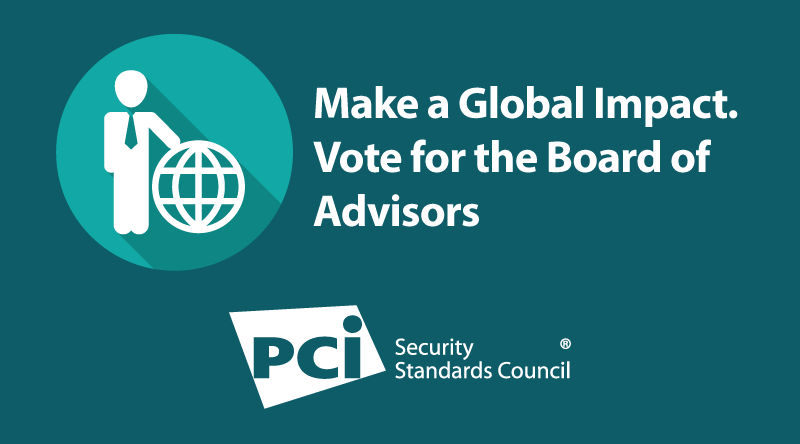The PCI Security Standards Council (PCI SSC) recently announced the election period for the next PCI SSC Board of Advisors. Board of Advisors represents PCI SSC Participating Organizations worldwide to ensure global industry involvement in the development of PCI Security Standards. As strategic partners, they bring industry, geographical and technical insight to PCI Council plans and projects. In this post, we talk with PCI SSC International Director Jeremy King about the importance of the PCI SSC Board of Advisors in shaping payment security globally.
What do you see as the greatest challenge in payment security in 2017?
Jeremy King: Cybercrime is a global threat affecting everyone, whether it is organized crime, state sponsored, or just individuals. The problem is we are still making it too easy for the criminals to gain access to our data, and so the greatest challenge in 2017 is changing that, but changing it globally.
The PCI Standards and guidance documents are global, and apply to every organization that stores process or transmits cardholder data. Yet how they impact different sectors and different actors in different countries and regions can be and is significant.
It is for this reason we need voices from across vertical industry sectors, countries and regions to help ensure we are providing the right requirements, the best standards, and the best protection against today’s modern cybercriminal - knowing that it is not just the equipment we buy, but also the people we employ and the processes we have in place that altogether provide the best protection.
How do you see the Board of Advisors helping address this challenge?
Jeremy King: Over the history of the Council, and my own involvement in the past seven years, I have to say the Board of Advisors has been fantastic. It is essential that we have a Board who actively participates at meetings and beyond this, who challenges the Council, yet is willing to provide help and support where necessary.
Over the years, the Board of Advisors has helped develop many new ideas that have had a direct impact on improving payment security globally. One example is the work we have done with global representatives from the hospitality and travel sectors, which are under constant attack. They have helped us produce a number of educational resources, provided their insights and perspectives at our Community Meetings, and helped us raise awareness of the challenges and show how the PCI Standards can and do make a difference.
Why is it so important to have international representation on the Board of Advisors?
Jeremy King: Because payments are global, because criminals are global and because we do payments differently in different parts of the world. As a result of this, different countries and regions have different areas of expertise. Some countries or regions have significant knowledge and expertise in e-commerce, others in mobile, yet others in cryptography and Point-to-Point Encryption (P2PE), or new technology. Bringing all of this knowledge and expertise together is what the Board of Advisors and the Council works extremely hard to achieve, so that our standards can be and are the very best. That way the PCI Standards can be as applicable to a merchant in Sao Paulo as are they are to a merchant in Tokyo, and everywhere else in the world.
Why should the PCI community vote for the Board of Advisors?
Jeremy King: To make a difference. To make sure we have the very best global representation on the new Board that is going to help drive the Council forward to tackle the challenges ahead.
If you are a PCI SSC Participating Organization or Affiliate Member, I’d encourage you to look carefully at the list and vote for those representatives who best address your issues and concerns, who will represent your sector, or country or region. The broader the mix of representatives, the better the next Board of Advisors will be.
Primary business contacts for PCI SSC Participating Organizations and Affiliate Members are invited to submit a ballot for the PCI SSC Board of Advisors election. The voting period is open until Monday, 17 April at 11:59PM Eastern.


